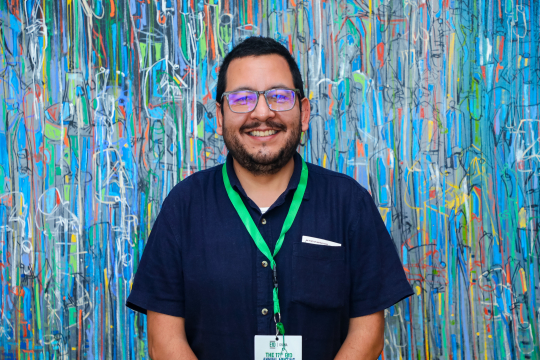From an individual perspective, climate change may be perceived as distant or difficult to understand. Its influence is likely to be restricted to conversations about changes in the climate, such as variations in temperature, rainfall patterns, or shifts in the timing of the seasons. However, in seemingly simple choices, such as the selection of food, the clothes we wear, or the means of transportation we use, we rarely pay enough attention to fully understand the environmental impact that such decisions can have.
For example, the World Wide Fund for Nature (WWF), an NGO dedicated to wildlife conservation and reducing human impact on the environment, has estimated that approximately 2,700 liters of water are required to manufacture one t-shirt. This amount of water is equivalent to the average consumption of a person for 900 days.
Our food choices also have a considerable impact on the environment. Numerous investigations have delved into the implications in terms of water and soil use, in addition to the pollution associated with our eating habits. It is estimated that approximately 35% of total greenhouse gas emissions come from the global food production system, which spans from production to transportation and storage of food around the world. At the same time, around 80% of the crop areas on the planet are dedicated to the production of meat and its derivatives (for example, dairy), which represents a total of 3.9 billion hectares.
The consumption is not sustainable
Population growth and rising living standards globally add up to generate greater pressure on land and other non-renewable natural resources, which in turn implies greater degradation of our environment. Finally, it is common to hear examples that illustrate the time required for biodegradation of products made with plastic. For example, it has been reported that plastic bags require 20 years to decompose, while beverage straws can take up to 200 years to decompose.
All of this data serves to confirm that our current production and consumption patterns are not sustainable over time, and are triggering the so-called triple planetary crisis: climate change, pollution, and loss of biodiversity.
Daily decisions matter
To avoid these crises, urgent and ambitious “transformative changes” are needed in the way we live; That is, we need a fundamental restructuring of the entire system of the fundamental causes of the degradation of nature.
We need to create a future where people and nature thrive, but this will depend on how society values nature and, even more importantly, integrates this value into our daily decisions.
This task is not easy, since a paradigm shift cannot simply be imposed by some institutions (for example, the government), but must be supported by everyday practices and decisions. For example: it has been estimated that if a person switches from beef to beans once a week for a year, he will keep the equivalent of 331 kilograms of carbon dioxide (CO2) out of the atmosphere.
Searching for a green and inclusive development
How much does this represent in terms of environmental impact? Giving up meat once a week in favor of beans, over the course of a year, would be equivalent to not burning 144 liters of gasoline or 5% of the average household's electricity use. If these individual changes are translated to the level of society, the impact is very important.
Our research work on environmental economics issues, from the Tropical Agricultural Research and Teaching Center (CATIE) and the Central American headquarters of Environment for Development (EfD), consists of trying to generate evidence to influence changes in behavior and policies. publics consistent with green and inclusive development.
Small changes can make a big difference
Our vision is to become a strong and internationally recognized network of academics with frequent exchanges of mutually reinforcing ideas and research methods, contributing to the achievement of Sustainable Development Goal 12 which consists of ensuring sustainable consumption and production, from a perspective economic, but with a truly systemic and comprehensive approach, towards the design of transformative changes in lifestyles, food consumption, waste generation, and circularity.
However, we must be aware as individuals that every small action counts. By making changes to our daily habits, we can help create a more sustainable future.
Governments need to take action
In addition to the individual changes we can make, it is also important to demand that our governments take action to address the climate crisis. We can do this by voting for candidates who support climate policies or by contacting our elected representatives to demand behavior consistent with a responsible future.
In the fight against climate change, each of us has a fundamental role. By collaborating together, we have the power to forge a more sustainable future for our planet.
Pablo Evia is the coordinator of the collaborative program SCOPE (Sustainable Consumption and Production) of Environment for Development (EfD).
Originally published in El Observador, used by permission.
